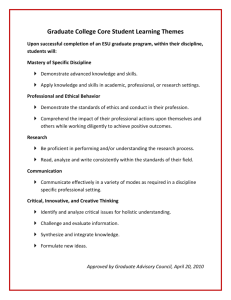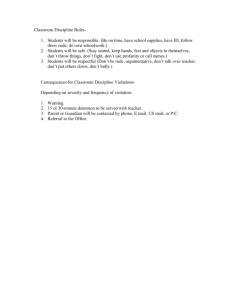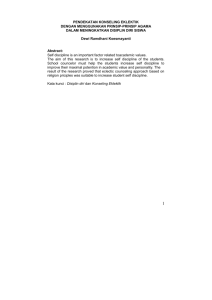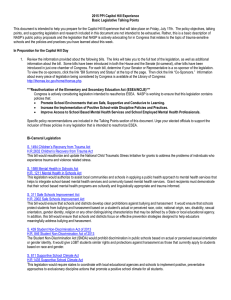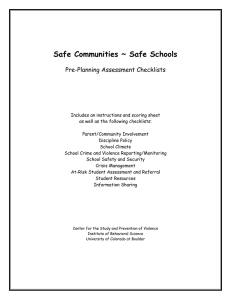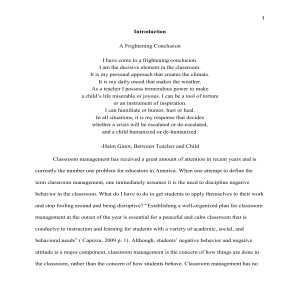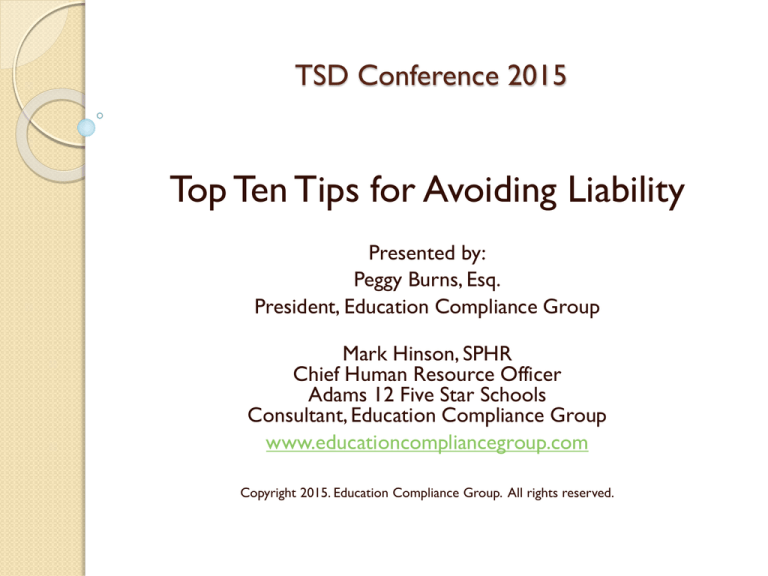
TSD Conference 2015
Top Ten Tips for Avoiding Liability
Presented by:
Peggy Burns, Esq.
President, Education Compliance Group
Mark Hinson, SPHR
Chief Human Resource Officer
Adams 12 Five Star Schools
Consultant, Education Compliance Group
www.educationcompliancegroup.com
Copyright 2015. Education Compliance Group. All rights reserved.
Enact and Communicate Sound
Policies
The value of anti-harassment policies –
clear and well-communicated
The necessity for enacting policies
especially in areas where the law is
unsettled (e.g., social media)
The use of policies as expression of
expectations and priorities
The importance of revisiting and updating
policies on an on-going basis
Self-Assess and Monitor
Actual compliance with IEP’s
Communication structures with other
departments within the organization
The company’s or district’s work
environment and culture, including
effectiveness and style of managers and
supervisors
Document, document, document
To capture details
To show importance of an incident or policy
To clarify expectations
To resolve “he said, she said”
To preserve information that may have
evidentiary value
To minimize organizational exposure to formal
complaints filed with federal agencies (EEOC,
OCR, etc.)
Initiate Inquiries and Investigations
The role of notice: Train staff to report
matters that you’re required to investigate
Include other departments such as: Legal,
HR, Special Ed and/or law enforcement as
may be necessary
Respond to events in a timely manner
Employ appropriate investigatory
processes
Training Musts
Drivers and attendants:
◦ The importance of adhering to district and
dept. policies that are non-discretionary
Dispatchers
◦ Answers for questions from drivers and
attendants
Middle level managers
◦ Federal employment laws (e.g., FLSA, ADA,
Title VII)
Respect the First Amendment
Issues to watch:
Time, place and manner
Context in which the dispute rose
Impairment of discipline, or interference
with harmony
Detrimental impact on necessary team
work
Impedes duties or interferes with
operations
Understand and Confront Bullying
Workplace: Mistreatment severe enough to
compromise a targeted worker’s health,
jeopardize his job and career, and strain
relationships with friends and family
Student-to-student: Persistent, unwanted,
aggressive behavior involving a real or perceived
power imbalance. When a member of a
protected class is targeted, bullying may constitute
harassment (unwelcome conduct based on a
protected class that is severe, pervasive, or
persistent and creates a hostile environment).
Use Hiring Practices that Support
Your Goal
Background checks
The 3-legged stool:
◦ Job Descriptions
• What are the essential functions?
◦ Evaluations
• What is their role and value for maintaining
employment?
◦ Compensation
• Ability to attract and retain
What are the necessary “soft skills”?
Hiring beyond a CDL
Foresee the Foreseeable
Foreseeability/ Reasonable Action
Equation: When you’re on notice of likely
student or workplace issues, take
reasonable steps
Provision of FAPE and overall safety of
the student involves foreseeing and
providing for emergency situations as well
as day-to-day needs of the student
Discipline Fairly and with Purpose
When “process is due,” provide due process
Treat similar situations in a similar manner
Be able to articulate the basis for the decision
Have documentation that supports the decision
When a situation is likely to endanger students –
Ignoring, or failing to act appropriately to discipline,
can leave you vulnerable to a claim of deliberate
indifference
Take steps to avoid retaliation claims
Address performance concerns in a timely manner
Consult with HR as appropriate
Contact Mark and/or Peggy at:
Education Compliance Group
3904 NW Platte Brooke Drive
Kansas City, MO 64151
888.604.6141
www.educationcompliancegroup.com





